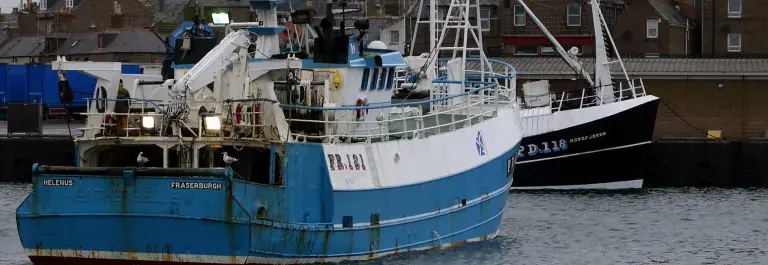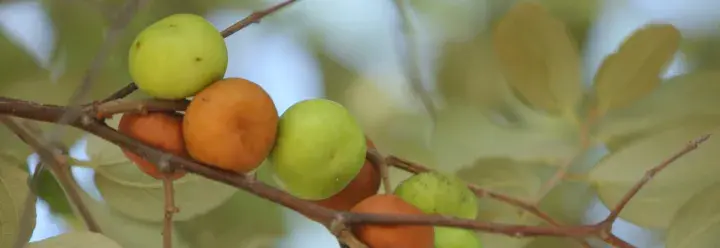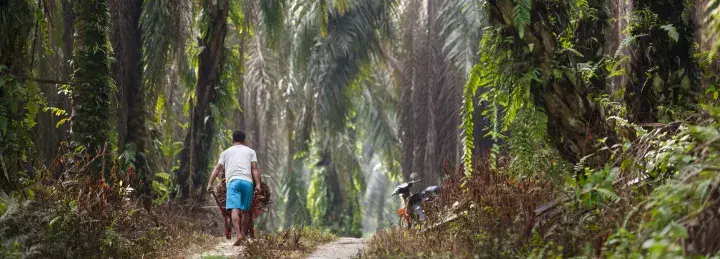Cooperation between the government, the fishing industry and the Marine Stewardship Council (MSC) enabled Suriname’s seabob fishery to become the first credibly certified shrimp fishery in the tropics. While certification helped secure access to important export markets, the process also led to wider improvements in fisheries management.
Background – Suriname’s growing fishing industry
The small nation of Suriname lies along the north coast of South America. With most of the country swathed in dense rainforest, the majority of Suriname’s half a million inhabitants live along the narrow coastal plain where fishing is essential to community livelihoods. In the mid-1990s, as an alternative to the traditional catch of Penaeus prawn which was then in decline, local fishers began catching Atlantic seabob (Xiphopenaeus kroyeri). This small, white tropical shrimp is abundant in the country’s shallow coastal waters and across the wider Caribbean. Suriname soon became the third largest producer of Atlantic seabob in the world.
As Suriname’s exports have grown, so has the pressure to ensure the fishery’s sustainability and long-term viability. Customers in Europe and North America, the main markets for Suriname seabob, are increasingly demanding seafood from traceable sustainable sources. Recognising this, European shrimp processing giant Hieploeg Group began discussions with shrimp fishers and the government in Suriname about using the sustainability standards developed by the MSC to create a verified sustainable supply of Suriname seabob.
This was an ambitious first. While some 87% of cold-water prawn or shrimp is MSC certified, no shrimp fisheries in the tropics were certified at the time. Indeed, MSC certification in the Global South is much less widespread than in higher latitudes, with developing countries accounting for only around 10% of the volume of the total certified catch. Often this is due to a lack of scientific data and formal management plans. To overcome this obstacle, the Suriname government, MSC and the Suriname fishing industry established a pioneering partnership, setting an example for other tropical fisheries in the wider region.
Certification as a catalyst for collaboration
The MSC is widely recognised as the world’s leading certification scheme for wild-caught seafood. It provides credible third-party verification that a fishery’s operations are sustainable and well managed, ensuring that fish stocks aren’t overexploited and there aren’t unacceptable impacts on other species or marine ecosystems. Products bearing the MSC label can be traced back to a certified sustainable fishery through a transparent and robust chain of custody system.
The MSC audit process is highly transparent, and has been designed to allow all relevant stakeholders to be consulted and involved. As a result, the MSC process not only led to certification, but also became a catalyst for strengthening overall fisheries management in Suriname.
In 2009, an initial assessment against the MSC standard revealed that, like many others in the Global South, the Suriname seabob fishery lacked the comprehensive, long-term scientific data needed to meet the requirements of the usual MSC certification process. In particular, it lacked a formal stock assessment and had gaps in its data collection practices. Also, while turtle exclusion devices were already in use and new escape panels were added to fishing gear to minimise accidental capture of other species, there was not yet a strategy in place for managing interactions with endangered, threatened and protected species in the area.
However, the MSC recognises that a lack of data does not necessarily mean a fishery is operating unsustainably. To make certification more accessible for small-scale and developing world fisheries, the MSC has developed a risk-based framework which provides a way for certification bodies to judge the potential impacts on species, habitats and ecosystems in the absence of formal data. The Suriname seabob fishery was one of the first to be partially assessed using this risk-based approach.
The impacts – supporting national action on sustainable fishing
The MSC audit process jumpstarted a broader policy process when the Surinamese government took steps to address the lack of data on the sustainability of fish stocks. The government commissioned a full stock assessment, with fishers and scientists collecting 300,000 samples from catches over the course of two years. Together with existing government data, this enabled stock levels to be estimated and sustainable catch limits to be determined.
This work led to a new national seabob fishery management plan, given ministerial approval in 2010. The management plan – the first of its kind in Suriname – formally set out objectives and management processes for ecologically responsible and sustainable fishing, which minimises impacts on the target species, the marine ecosystem, and breeding and nursery grounds of shrimp and other fish species. It includes harvest control rules for reducing fishing if stock levels show signs of decreasing, plus regular monitoring, periodic stock assessments, focussed research into potential impacts on the ecosystem and requirements for reducing bycatch.
During the MSC audit process, a seabob working group was established. The group, which meets monthly, includes representatives from the commercial fishing industry, the Suriname government Ministry of Agriculture, Animal Husbandry and Fisheries, and local artisanal fishers. Civil society organisations, such as WWF, can also join the group in an observer capacity. The seabob working group play a key role in overseeing the fishery and its management, and provides a forum for discussing and resolving disputes and other issues that may arise. This sort of multistakeholder partnership, bringing together public, private and civil society partners, contributes to SDG17, which aims to strengthen the means of implementation for sustainable development.
To further increase transparency and accountability, the Surinamese fisheries department launched a website (www.seabob.sr). This includes information on the fishing fleet, management plan, stock assessment and other details. In addition, regular audit reports are made public on the MSC website.
As a result of these efforts, the Suriname seabob fishery achieved MSC certification in 2011, becoming the first tropical shrimp fishery in the world to do so. This contributes to SDG12 by enabling more sustainable consumption. The certification included various conditions for improvement, all of which were successfully completed, enabling the fishery to be recertified in 2017. Bycatch was also further reduced during the certification period.
Since the start of the MSC process, the Suriname government has reinforced its own commitment to sustainable fishing by investing US$20m in enforcement vessels and strengthening its monitoring and surveillance programmes. This will help protect the seabob fishery and other Surinamese fisheries from illegal, unlicensed and unreported fishing. Coupled with improvements to data collection and fisheries management, this will help Suriname to achieve SDG14.4 to “effectively regulate harvesting and end overfishing, illegal, unreported and unregulated fishing and destructive fishing practices and implement science-based management plans”.
Lessons for policy-making
The MSC certification of Suriname’s seabob fishery provides an example of how a transparent and inclusive certification process can create a broader collaboration between fishing industry partners, government actors and other stakeholders.
It also reflects how international standards can be integrated in national policies, which in turn allow certification to take place. By introducing the first formal fisheries management plan in the country, based on sustainability principles and overseen by a transparent multi-stakeholder group, the process has helped to strengthen fisheries management in Suriname. It provides a model that can be followed by other fisheries in Suriname and elsewhere in the Global South.
“Thanks to the enthusiastic collaboration of fishers, government and industry, the Suriname seabob fishery successfully overcame many challenges on its path to certification. We hope that the improvements it made and the benefits we are now seeing will inspire fisheries in countries similar to Suriname to work towards MSC certification.”
Dirk-Jan Parlevliet, CEO of Heiploeg
ISEAL case studies series: Governments and Private Sustainability Standards
Private standards and public policy are not always aligned or coordinated. New forms of co-regulation are needed to enable sustainable production, trade and consumption in line with the Sustainable Development Goals. This series of case studies illustrates how standard systems and governments are working together for better sustainability outcomes. The series is developed by the ISEAL Alliance, the global association for credible sustainable standards.
Read more case studies on Evidensia.



